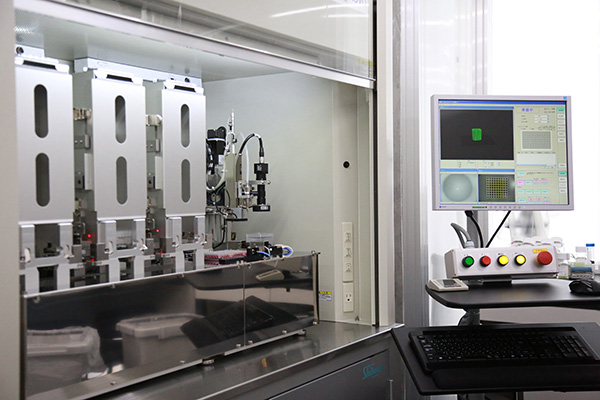
LifeNet Health continues pioneering regenerative medicine efforts with acquisition of scaffold-free, 3D tissue bioprinter
The LifeNet Health Institute of Regenerative Medicine (IRM) is taking a step toward the future of biomedical science and tissue engineering with the installation of a robotic “bioprinter” at its primary research and development facility in Virginia Beach, Va.
The Regenova 3D Bio Printer, a system developed by Japan-based Cyfuse Biomedical K.K., allows three-dimensional tissues to be fabricated from specific kinds of cells. For instance, isolated cardiac cells could be “printed” into a form that would enable researchers to test whether a new medication could harm a person’s heart. This advancement establishes the IRM as a leading developer of crucial research tools that could drastically speed the process of drug discovery and identify potential safety risks earlier in the process than is currently possible.
“The ability to use the 3D bioprinter to build high-fidelity tissue constructs from isolated cells greatly advances our vision and endeavors in creating implantable tissue structures, which furthers our mission of Saving Lives, Restoring Health and Giving Hope. It also allows us to play an important role in drug discovery and toxicity studies” said Rony Thomas, President and CEO of LifeNet Health.
LifeNet Health’s Regenova system will be the first of its kind operating on the East Coast and is just the second in North America. An advantage Regenova holds over other bioprinters is that it does not rely on additional scaffolds — such as collagen — to support tissue structures. The system’s unique mechanism allows the cells alone to form shapes such as spheres, tubes, rods or sheets. It also is gentler than other approaches, ensuring the highest number of living cells in the final shape.
LifeNet Health recently launched its Life Sciences Cell Products division, which prepares human primary cells and an array of other products for the medical research market, and will be developing resources that leverage the bioprinter’s capabilities. “Our opportunities to complement high-quality, cell-based models and tools for the research market are now greatly enhanced with the addition of the bioprinter,” said Dr. JingSong Chen, General Manager of the Cell Products division.
“We are excited to partner with LifeNet Health because we believe that our state-of-art technology is best showcased in the kinds of projects underway at the LifeNet Health Institute of Regenerative Medicine,” said Koji Kuchiisi, CEO of Cyfuse Biomedical.
Beyond presenting boundary-breaking opportunities in the realm of tissue engineering, the move dovetails with LifeNet Health’s mission by enhancing patient safety and ensuring that those who make the selfless gift of tissue donation can improve as many lives as possible.
